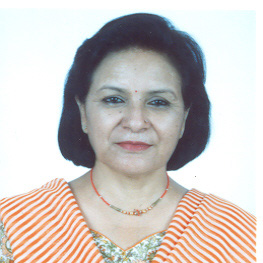Columns
Victims of domestic violence must make the decision to take back control of their lives
The national mission to end domestic violence must be taken to every family, school, workplace, courtroom, cabinet and police station.
Madhuri Rana Singh
We should applaud the courage and bravery of women who act on the decision to be in control of their lives once again, and most importantly, for breaking the myth that domestic violence is a common occurrence only among low-income families and the uneducated. Several cases among the more well-to-do and educated are kept hidden as the victim takes back her statement, suddenly disappears from sight or is silent, and reporting is not done placing ‘family prestige’ centre stage.
In Nepal, the groups targeted by non-governmental organisation programmes are usually from the lower social and economic stratum of society, and they have fewer qualms about maintaining family honour as they have, over time, been empowered to give precedence to their own safety and that of their children. This is the prevalent irony within patriarchy dominated developing countries where information, knowledge and support for women suffering domestic violence are limited to a particular set of women and not all women. We have no quarrel with development resources targeting poor women; but considering the changing socio-economic context, it is timely to think outside the box where domestic violence is concerned.
Lengthy procedures
In general, it can be said that patriarchy condones men’s lack of control over their anger, sometimes abetted by more powerful women of the household; and blames the lone woman, usually the wife for ‘inciting’ or ‘asking for it’. Injuries, severe or otherwise, are commonly described as ‘she slipped or fell' instead of treating them as physical evidence of assault, which is more often the case than not. An urgent question that needs highlighting is whether the institution of marriage itself is a legal licence for wife battery. Is marriage in new Nepal still about ownership of another individual where women have been and are equal contributors and partners in every aspect of conjugal life?
The endorsement of Domestic Violence (Crime and Punishment) Act 2009 is a worthy recognition by the state that domestic violence is a grave violation of an individual’s human rights and is criminalised. However, reluctance on the part of the woman to lodge a first information report is also due to lengthy legal procedures leading to delays in delivering justice and pressure from higher levels, all indicating acceptability of ‘slapping the wife to show who is in charge’ being justifiable as a traditional and cultural practice, that is maintaining social order. The patriarchal mindset of those in powerful positions to delay expedited justice to all victims further portrays domestic violence as the right of those in power, be it within a household or outside it, thus discouraging victims from seeking legal redress.
The increasing number and trend of domestic violence as reported by the Nepal Police, National Women Commission, National Human Rights Commission and non-governmental organisations are evidence that the incidence of crime is actually on the rise, and what is reported is only the tip of the iceberg. Therefore, it is critical and timely to assess whether the awareness and activities launched by the government and non-governmental organisations, such as one-stop crisis management centres and shelters, alike are reaching all women in need regardless of social caste or economic class. It is important to realise that providing security and services to the fortunate few who come in contact with non-governmental organisations and other institutions must be expanded from a campaign to a crusade for zero tolerance. The national mission to end domestic violence must be taken to every family, school, workplace, courtroom, cabinet and police station. Every media outlet should strongly support it and keep up the call to prosecute any perpetrator.
In the case of domestic violence, an essential step that must be taken by the abused is to break away from the violent situation. It is understandable that the abused may delay making a personal decision to report due to the lost ability to be resilient and whole again after consistent battery and abuse. But respect for self and the realisation that it is her right not to be restrained by physical, emotional, economic or social limitations will liberate the abused from the fear of further ostracisation and violence. This is the most critical decision the individual can make about her life whether it is ‘sooner or later’. As long as she makes the decision on her own or seeks support to take back control of her life ‘any time is the right time’. Her decision changes her status from victim to survivor and even an advocate against the scourge. It is the rebirth of the individual which should be the critical theme of support systems.
We are neither judge nor jury. We believe that the truth must come out every time, for eventually, it will set both parties free. Not all men are violent and some societies in Nepal are matriarchal, too. Domestic violence is about the abuse of power, and as such, men can be abused too; and this must be counted in the struggle to combat brutal behaviour.
Safety and security
The right to press charges, immediate court proceedings, freezing the assets of the accused and applicant, compensation, security and safety of victims are prescribed by Nepali law, but highly ineffective in practice. Non-governmental organisations and public institutions must urgently advocate and lobby for amendments to current legislation where required for rapid justice and unbiased enforcement of the same. Some reviews and studies indicate that victims and survivors are more at risk of further abuse after taking legal action and separation. Therefore, their safety and security must be given high priority at the outset.
To break away from violence and live our lives as a full and purposeful journey is fundamental to all of us. For this, there is a need to implement a comprehensive programme of information, knowledge and support for all women and men, affluent or otherwise.
***
What do you think?
Dear reader, we’d like to hear from you. We regularly publish letters to the editor on contemporary issues or direct responses to something the Post has recently published. Please send your letters to [email protected] with "Letter to the Editor" in the subject line. Please include your name, location, and a contact address so one of our editors can reach out to you.




 14.24°C Kathmandu
14.24°C Kathmandu















